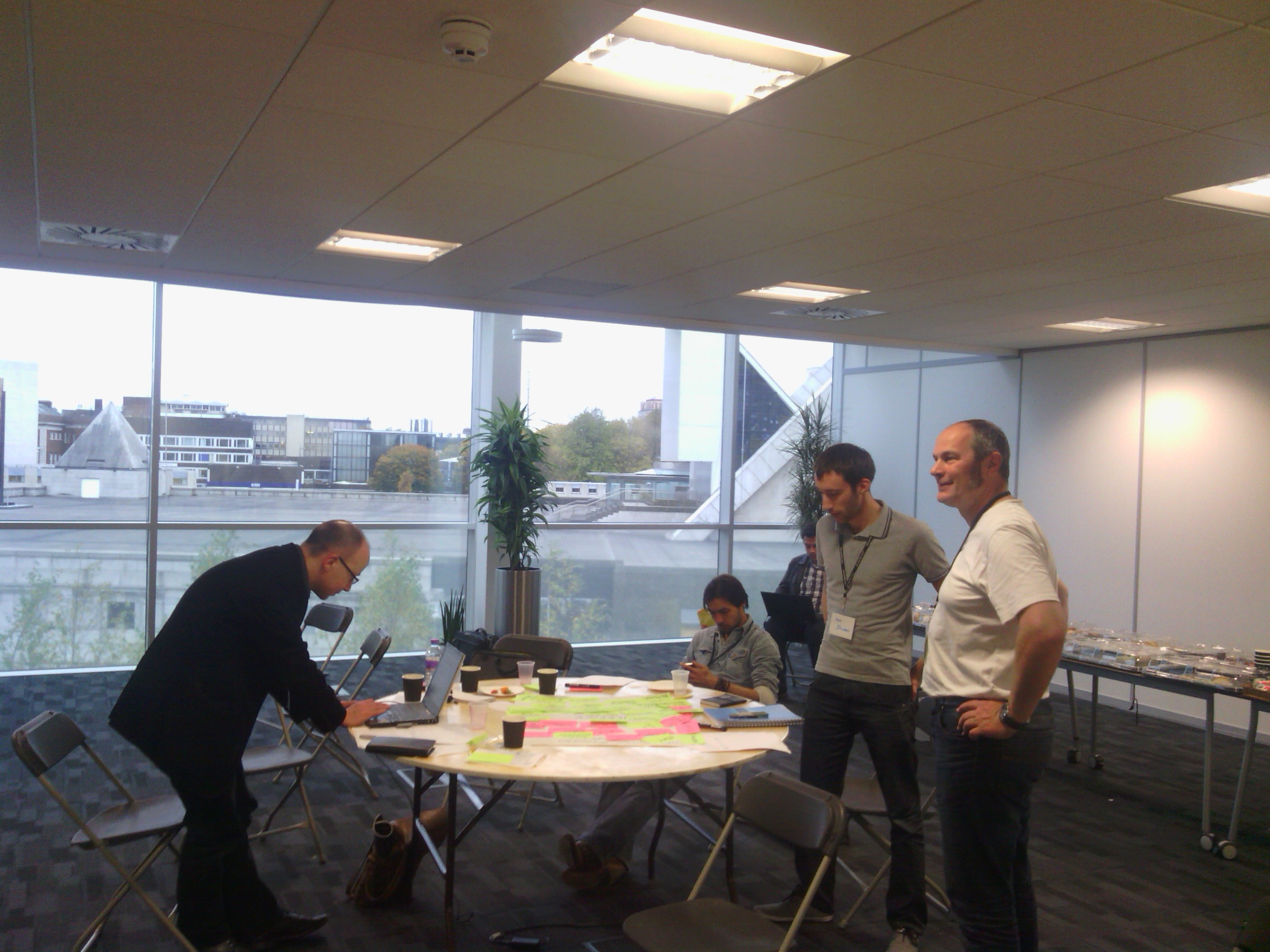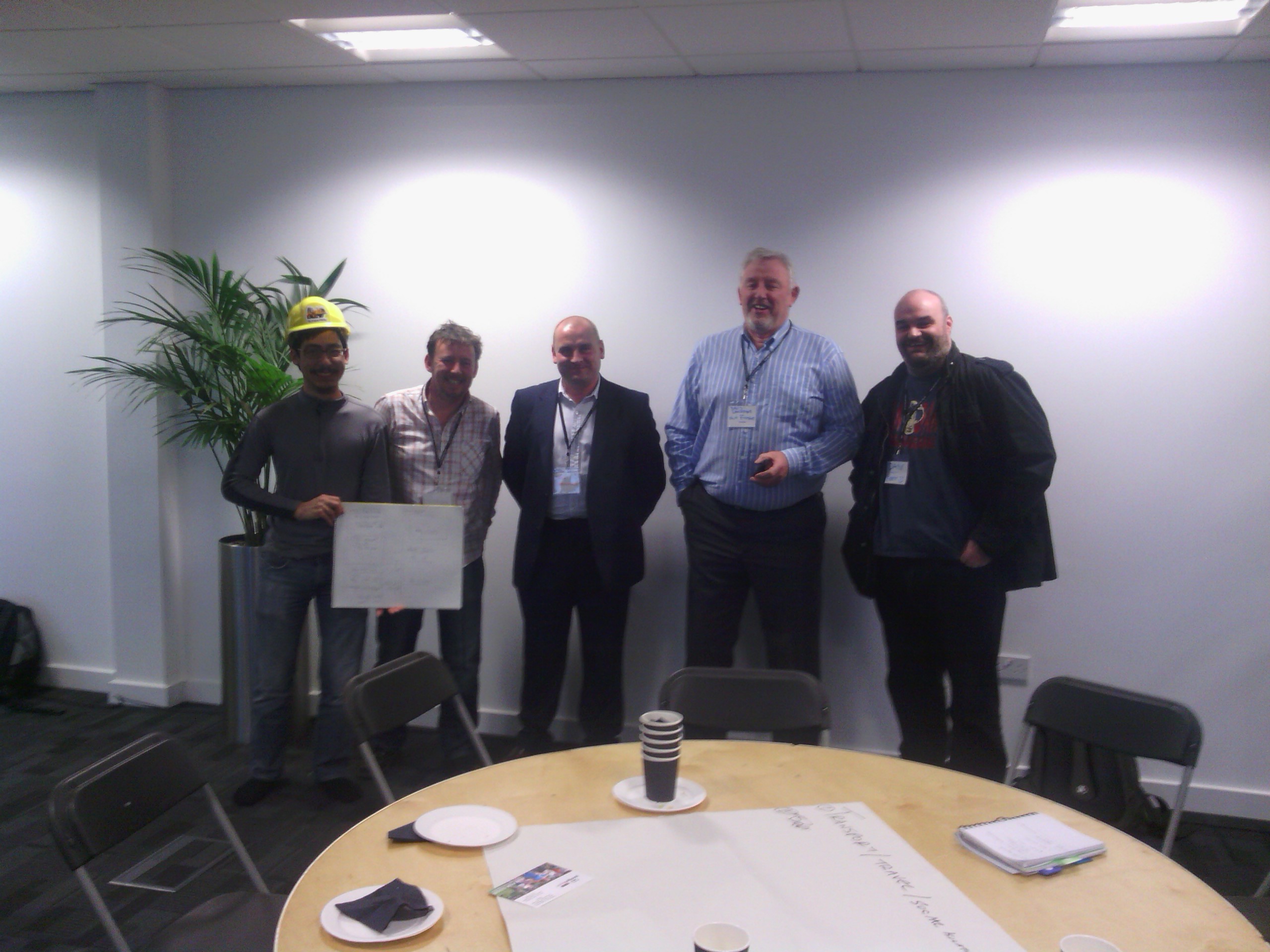Adult Social Care Hack Day @Liverpool Science Park
…a guest post by Max Zadow
On the Friday the 26th of October a room full of technologists, social workers and social care providers sat in a room and worked together to identify ways to create positive change in the Social Care system in Liverpool. For me it was a nervous time, because it had been my idea to get them there.
I’m developing some products in the adult social care sector, and so I’ve been talking to various council officials about my own ideas, but I’ve also been stressing that there is a wider community in Merseyside of talented and experienced developers that could be made use of.
Officials I’ve been speaking to are compassionate professionals who are unhappy they have to make cuts worth £247 million over the lifetime of this national Parliament. Councillors too came into local politics to make things better (at least in Liverpool). They want solutions: ways of doings things more efficiently and cheaper so they can maintain services for the most vulnerable in society. Adult Social Care is the biggest item in the budget, and protecting those services could mean closing ‘luxuries’ like libraries and youth centres. They are being persuaded that the ‘Start-up’ and Technology community in Merseyside has precisely the kind of attention to efficiency, value and genuinely new approaches that is needed.
Social Care is a ‘disrupted market’, and that is the kind of market Start-up entrepreneurs and technologists like the best.
My aims for the day were two-fold. First I wanted to demonstrate to Council Social Care teams that ‘hackers’ were not fiendish villains out to steal credit card numbers or start World War 3 while looking for evidence of UFOs. Instead, our community is socially minded, liberal and honest and I wanted the Council and provider teams to see that for themselves. Secondly, I wanted technologists to understand the crucial problems that providers and officials had in delivering care, so they could start the process of identifying the solutions.
Solutions were to come from all parties, and I hoped council and provider teams that would be freed to identify radical changes themselves. After all, this sector is what they full-time, the techies had only a day to understand the issues.
On the day, it was a really good atmosphere and council representatives and front-line staff bonded well with us ‘geeks’. Turned out a few of them were not without skills or knowledge in technology areas. There was pretty much constant discussion, and it was often around surprise at the size of the challenge.
Three main ideas came out: one was a working demo of an app to keep users updated of carer arrival times that updated in real-time, one that gave a user-focused approach to facilitating Personalisation, and one approach to sourcing availability of provision that could save a figure in the region of £2 million. Aine from ScraperWiki was kind enough to be one the judges that gave expert feedback to all that took part.
At the end there was a core of technologists wanting to do further work together in the area, including the leading expert, Mark Chapman, who travelled all the way from Sussex to be there. Council teams went away with personal connections to socially minded technologists and an idea of what they could do. In terms of my personal goals it was a success.
One sector of the audience was less enthusiastic. Big care providers (BUPA and H2E amongst them) came but left early. It wasn’t for them. They wanted to discuss the chains of tendering and procurement and attendant contractual delivery. Their business model is under threat and they are being asked to find savings in a low-margin business. Next time, we will talk to these big providers before-hand and make sure that we structure the day so they can take part in the process fully. They too are part of the system that ensures older and disabled people have a decent quality of life. They too have to maintain quality and make savings. I’m a disabled person myself, so this matters to me.
This is an ongoing process people can join in. I’m part of a group of people that are trying to encourage all relevant parties to free up some seed funding for innovative approaches. Ideally, the Feel Good Factory and its successful DALLAS bid will one source of support for change. But we need to show that we can solve problems if we get some basic resources to do so. Events like this help.
There are a bunch of us in Liverpool who are involved in making a difference, and helped promote and deliver the event: Garry Haywood @_garrilla, Neil Morrin @plastic_robot, and, of course, DoES Liverpool @DoESLiverpool (especially the lovely John McKerrell @mcknut). Thanks also to Scraperwiki. It was this community that gave encouraged me in the first place to volunteer the time and make the day happen.
To take part in future events email me at max (at) future-coders.com and I’ll put you on a mailing list In addition, contact Phil Rigby from Liverpool Council who is putting together an Innovation Network. Phil.Rigby(at) Liverpool.gov.uk. The day was organised by Digital Creativity in Disability (my Start-up – ironically currently without a website.)



